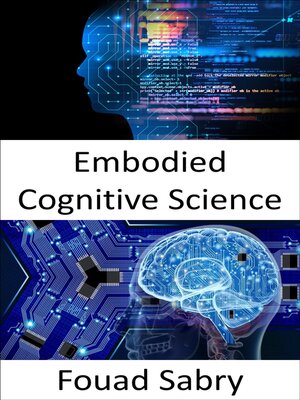Embodied Cognitive Science
ebook ∣ Fundamentals and Applications · Artificial Intelligence
By Fouad Sabry

Sign up to save your library
With an OverDrive account, you can save your favorite libraries for at-a-glance information about availability. Find out more about OverDrive accounts.
Find this title in Libby, the library reading app by OverDrive.



Search for a digital library with this title
Title found at these libraries:
| Library Name | Distance |
|---|---|
| Loading... |
What Is Embodied Cognitive Science
The fields of linguistics, psychology, neuroscience, philosophy, computer science/artificial intelligence, and anthropology all contribute to the multidisciplinary field of cognitive science, which is the scientific study of the mind and the activities that occur within it. This research investigates the nature of cognition as well as its activities and functions. Cognitive scientists investigate intellect and behavior, with a particular emphasis on the ways in which the nervous system represents, processes, and transforms information. Language, perception, memory, attention, reasoning, and emotion are all aspects of the mind that cognitive scientists are interested in studying. In order to gain a better understanding of these aspects of the mind, cognitive scientists draw from a variety of other academic disciplines, including psychology, artificial intelligence, philosophy, neurology, and anthropology. The study that is typically performed in cognitive science covers a wide range of organizational levels, including learning and decision making, logic and planning, neural circuitry, and modular brain organization. One of the most important ideas in cognitive science is the idea that "thinking can be best understood in terms of representational structures in the mind and computational procedures that operate on those structures."
How You Will Benefit
(I) Insights, and validations about the following topics:
Chapter 1: Cognitive Science
Chapter 2: Perception
Chapter 3: Cognitive Model
Chapter 4: Embodied Cognitive Science
Chapter 5: Embodied Cognition
Chapter 6: Situated Cognition
Chapter 7: Distributed Cognition
Chapter 8: Enactivism
Chapter 9: Extended Mind Thesis
Chapter 10: Predictive Coding
(II) Answering the public top questions about embodied cognitive science.
(III) Real world examples for the usage of embodied cognitive science in many fields.
(IV) 17 appendices to explain, briefly, 266 emerging technologies in each industry to have 360-degree full understanding of embodied cognitive science' technologies.
Who This Book Is For
Professionals, undergraduate and graduate students, enthusiasts, hobbyists, and those who want to go beyond basic knowledge or information for any kind of embodied cognitive science.







